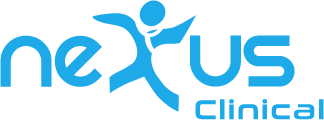
With a slew of EHR and PM software in the market, it’s crucial to understand that not all medical practice software is created equal. A high-quality digital practice management system is the first step in providing excellent patient care, but it is not enough. To succeed in your medical practice, be sure the software you’ve invested in provides you with the results you need.
Due to increased pressure to reduce medical costs and shifting dynamics of clinic settings, demand for practice management systems is expanding. A recent study from Grand View Research stated that the market for practice management systems in the United States is expected to hit USD 13.3 billion by 2027, with a CAGR of 10.2 % during the coming years. The market will develop even faster if more emphasis is placed on adopting cost-effective, high-quality care.
Healthcare practitioners can deliver the proper therapy at an affordable price with practice management solutions, lowering treatment expenses. Here are the seven necessary features you should look for in the Practice Management software.
Integration with EHR
Even if stand-alone PM software that doesn’t integrate with any EHR is rare these days; it is important to choose a PM that works with an EHR that drives efficiency for clinical staff and providers. Such EHR and PM software may be provided by the same vendor or different vendors. If you have a choice to choose the same or different vendor for EHR or PM while making the selection then it gives you flexibility in choosing the right combination that helps your office.
Easy Scheduling
Appointment scheduling is critical for any medical professional because it guarantees that your schedule remains filled, allowing you to maximize your ROI.
You’ll want to choose an appointment scheduling system with EHR integration to make practice administration easier for your staff and provide patient satisfaction that yields increased appointments. It’s simpler to manage medical appointments and effectively fill appointment slots when patient data is easily present at the time of booking.
Practice Management software should allow patients to request appointments online so front desk staff doesn’t need to spend time with patients for regular appointment scheduling.
Self Service for Patient Intake
Patient intake has always been a time-consuming step, making it uneasy for the staff and patients to coordinate for getting the demographics, histories, and allergies on intake forms and getting the various consent documents signed by patients.
Urgent care and walk-in clinics can have very long wait times due to the lengthy intake process.
The PM software with self-service capabilities will reduce the wait time drastically. Patients should be able to fill up the intake forms from home via patient portals or using self-service Kiosks. Documents can be signed from home or via patient kiosks while checking in.
Short wait times improve patient experience and patient retention as well.
Real-time Eligibility Check
One of the most important features of a PM system is to perform eligibility checks. The capability to have a real-time eligibility check allows you to batch verify patient insurance eligibility before visits.
Many practices rely heavily on insurance/medicare/Medicaid patients. Accounts and billing teams manually verifying the eligibility can eat up the hours of your staff daily.
A clinical software that can automate this step and make it easy for front office staff to see copays, deductibles, and coinsurance which can be collected at the time of the patient check-in.
Appointment Reminders
For appointments, the automated reminders add a great value to the patients and reduce a lot of manual work of the staff. Here‘s how clinicians and patients are benefited from scheduled appointment reminders,
- Patients/guarantors confirm or cancel immediately.
- As a simple visual help, confirmations or cancellations are instantly inserted into each person’s appointment on our planner.
- Specific cancellation alerts, allow you to contact to reschedule swiftly and, if feasible, fill gaps with fresh or upcoming appointments.
- To contact patients who haven’t confirmed or canceled their appointment.
A reminder of a medical appointment helps reduce no-shows while improving your patient’s experience and increasing your revenue.
Comprehensive Reporting
One of the primary goals of Practice Management & EHR deployment, as we all know, is to fast-track the patient documentation and charting process so that you can see more patients during the day. Medication histories, allergies, ongoing treatments, vaccinations, and other crucial data points should all be freely available in your clinical software.
PM & EHR systems that allow real-time monitoring and reporting have made effectiveness assessments a lot simpler. You won’t waste time finding scattered charts, praying by the fax machine, or digging for misplaced patient information if you have a unified perspective of what has to be done.
Recall Management Module
The capability of PM systems to provide easy or automatic patient recall functionality can help in improving patient retention and providing better care. For long-term care, regular patient follow-ups are very important. The office staff spending a lot of time on manual follow-ups and communicating with patients can waste hours of staff’s time on daily bases.
PM and EHR systems providing easy reminders for staff and patients for a follow-up can enhance clinical efficiency and keep patients engaged in the care plan.
Conclusion
Other essential elements to look for include integrated claim administration, mobile-friendly interface, role-based access, easy-to-use check-in kiosk, and patient portal, in addition to those above seven must-have features.
We provide the most outstanding unified practice management and EHR solution, assisting your teams in transforming their services in a time-saving manner. You also have the flexibility to keep using the PM of your choice and use our EHR. Get in touch with us to learn more about our practice management and EHR platform.





